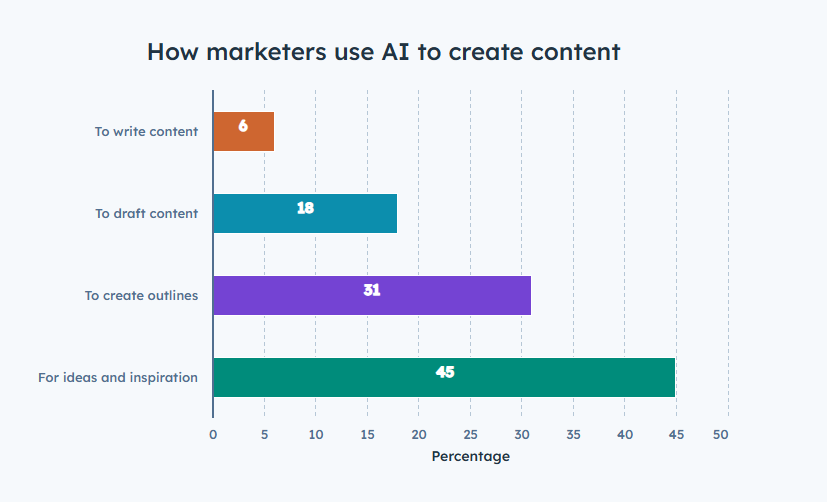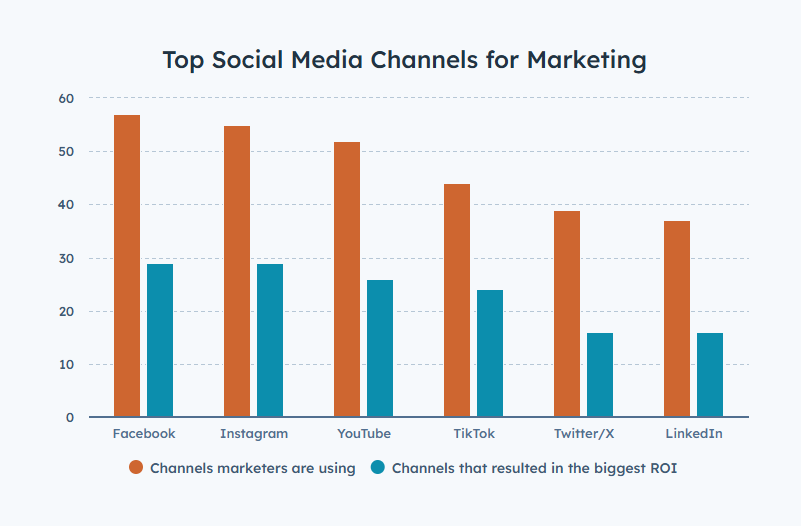The 2024 State of Marketing Report by HubSpot highlights major trends transforming marketing strategies, focusing on AI, personalization, and data privacy. Key insights include AI-powered personalization, social media’s role in customer engagement, and the transition to cookieless tracking for privacy-compliant targeting. Efficiency remains crucial, with AI tools significantly reducing manual work and fostering CRM-driven alignment between marketing and sales. As privacy concerns grow, first-party data collection and personalized experiences emerge as essential strategies.
AI: Transforming Personalization
AI is reshaping how businesses interact with customers by delivering hyper-personalized experiences. By analysing user behaviour, preferences, and even subtle engagement patterns, AI-powered tools enable marketers to anticipate needs before customers even voice them. This predictive accuracy helps brands send relevant messages at the ideal moments, creating an engaging experience that fosters loyalty.

This chart illustrates how marketers are utilizing AI in their content creation processes. The majority (45%) leverage AI for ideas and inspiration, showing its value in brainstorming and concept generation. Thirty-one percent use it to create outlines, streamlining the planning stage. Eighteen percent rely on AI for drafting content, but only 6% use it to write complete pieces. These figures suggest that while AI is a valuable tool for support and structuring, many marketers still prefer human input for the final content.
Privacy: Navigating the New Normal
As privacy expectations shift, transparency and respect for user data have become non-negotiable. With third-party cookies on the decline, brands are moving to first-party data—information gathered directly from interactions with customers. This shift emphasizes trust, encouraging businesses to foster relationships based on respect and clear communication around data practices, ensuring compliance and customer confidence.
Social Selling: Building Authentic Connections
Social selling has evolved into a core strategy as consumers prefer to connect with brands on a personal level. Brands are now using social platforms to build genuine relationships rather than just push products. By engaging authentically and providing value through relevant content, brands establish themselves as trusted voices, making customers more likely to choose them over competitors.

This chart shows marketers’ preferred social media platforms compared to those yielding the highest ROI. While Facebook, Instagram, and YouTube are the most used, the ROI data tells a different story. Only about half of marketers using Facebook and Instagram see it as top for ROI. YouTube and LinkedIn also show similar gaps between use and ROI, suggesting that while popular, these platforms may not always deliver the best returns. This insight encourages marketers to assess effectiveness rather than just follow trends.
Cookieless Personalization: Rethinking Targeting
As data regulations tighten and cookies phase out, personalization strategies must adapt. Marketers are turning to cookieless solutions like contextual targeting and first-party data collection, ensuring compliance while still delivering targeted experiences. This shift pushes brands to be more creative, fostering customer loyalty through meaningful, privacy-compliant engagement rather than invasive tracking.
These 2024 trends challenge marketers to adopt tools and strategies that are innovative, respectful, and deeply connected to consumer values. By focusing on AI, privacy, and authentic connections, businesses can create lasting relationships with their audiences in a rapidly evolving digital landscape.


https://advokat-kokin.ru/